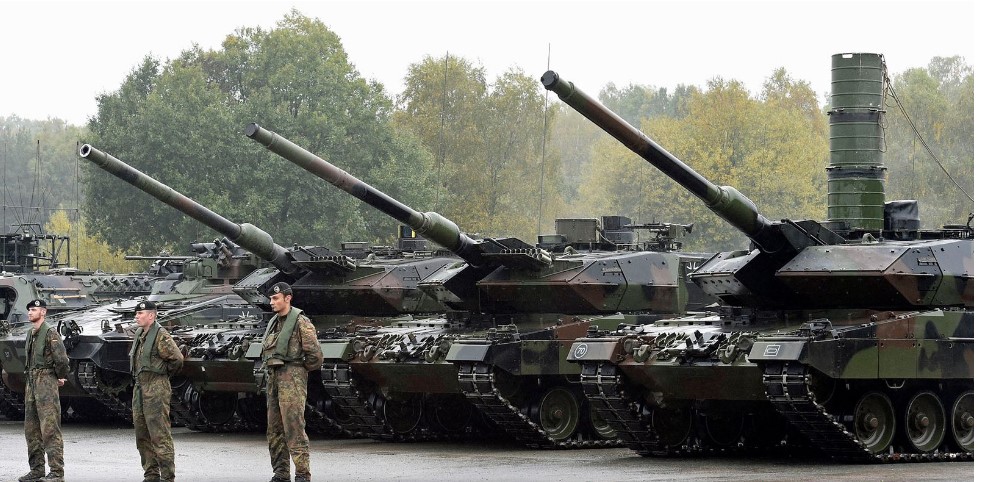
Moscow has warned the United States it will destroy any long-range missiles that are fired into Russia as Washington mulls changing restrictions on the use of the weapons by Ukraine.
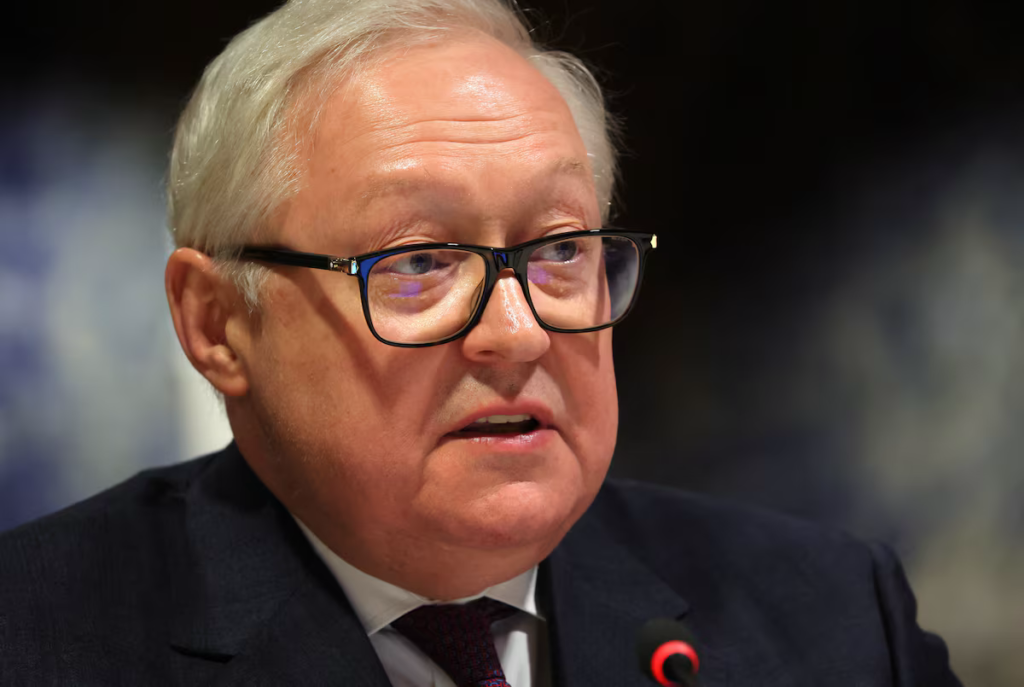
Sergei Ryabkov, Russia’s deputy foreign minister, also warned the US on Wednesday of “the dangers and risks” of sending Kyiv long-range missiles, the state TASS news agency reported.
The comments came as Ukraine’s prime minister urged the British Foreign Secretary David Lammy to let Ukrainian soldiers fire long-range missiles into Russia.
Denys Shmyhal made the plea in the opening remarks of his meeting in Kyiv with the Foreign secretary on Wednesday morning.

Mr Shmyhal said: “We hope that long-range equipment for strikes on the territory of our enemy will be reached and we will have it. And we hope for your help and support in this issue.”
The face-to-face request comes as the UK and US consider whether to grant Ukraine their request to fire British Storm Shadow missiles deep into Russian territory.
The Kremlin has also rejected reports on that Iran had shipped missiles to Russia, describing them as “baseless”.
Antony Blinken said at a press conference on Tuesday that the Iranian-made Fath 360 ballistic missile will likely be used in Ukraine “within weeks”.
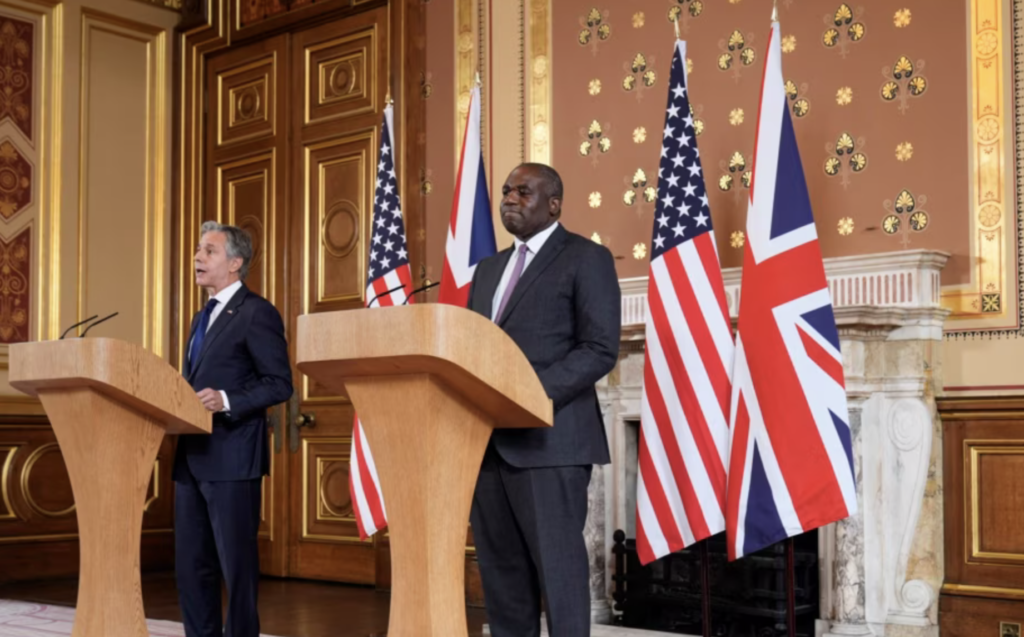
The US secretary of state warned that relations between Moscow and Tehran threatened European security, not just in Ukraine or the Middle East.
Tehran called the US claim “ugly propaganda” and insisted that Iran did not send any ballistic missiles to Russia.
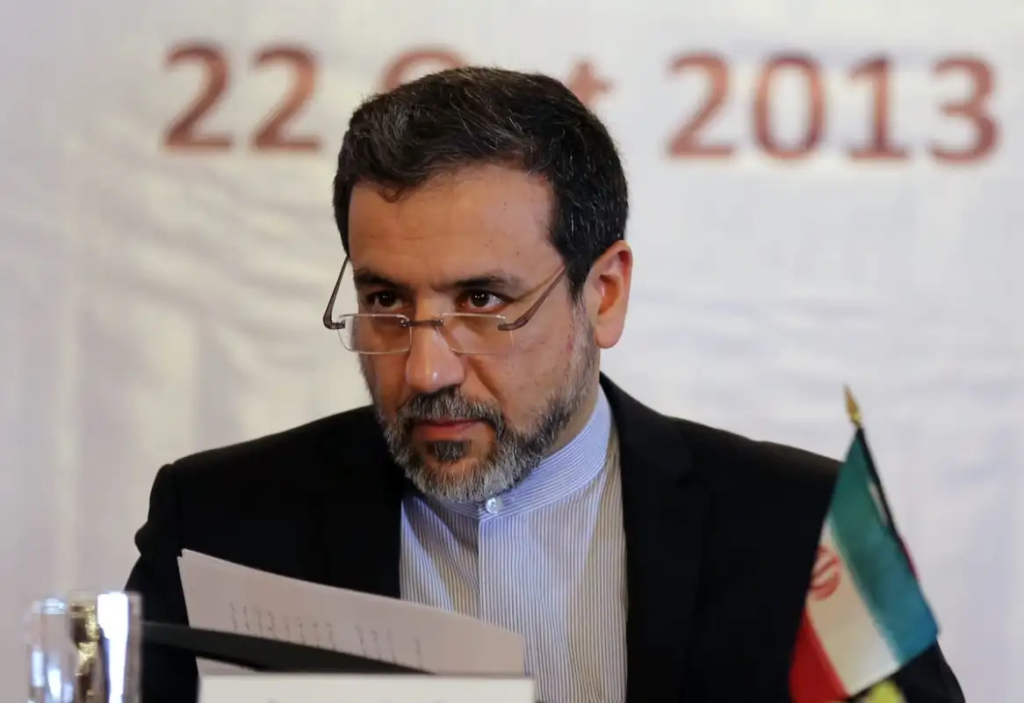
Abbas Araqchi, the Iranian foreign minister, also criticised the sanctions that have been imposed by the UK and the US in the wake of the weapons being send for Moscow’s use.
Meanwhile, a report by the National Audit Office said that Britain’s warfighting ability has been damaged by training Ukrainian soldiers.
UK’s military support for Ukraine had “constrained” its ability to train British troops, as it reduced the availability of training facilities on the Army’s estate.
The report, published on Wednesday, said: “The MoD has acknowledged that Interflex will constrain the Army’s capacity to train its own soldiers.”
The report found that Army units had bids for time in training areas rejected eight times more often in 2023 than they were in 2019.
This was because a quarter of the Army’s training estate was being used for Operation Interflex, the UK’s basic infantry training programme.
More than 45,000 Ukrainian recruits have taken part in the scheme.
Last week, John Healey, the Defence Secretary, announced Operation Interflex would continue throughout 2025.
Operation Interforge, another training programme for Ukrainian marines, had to be moved to the Netherlands earlier this year because “the use of training facilities in the UK was threatening to compromise the Royal Marines’ own training needs”, the report said.
Since just before the outbreak of the war £171.5 million of equipment from the UK’s own stockpiles has been donated to Ukraine, on top of spending £2.4 billion procuring new equipment for Kyiv.
The cost of replenishing British stockpiles is set to outweigh the value of the donated equipment, although the MoD said the discrepancy was because of the UK buying newer equipment, which in some cases is more advanced than the kit donated to Ukraine.
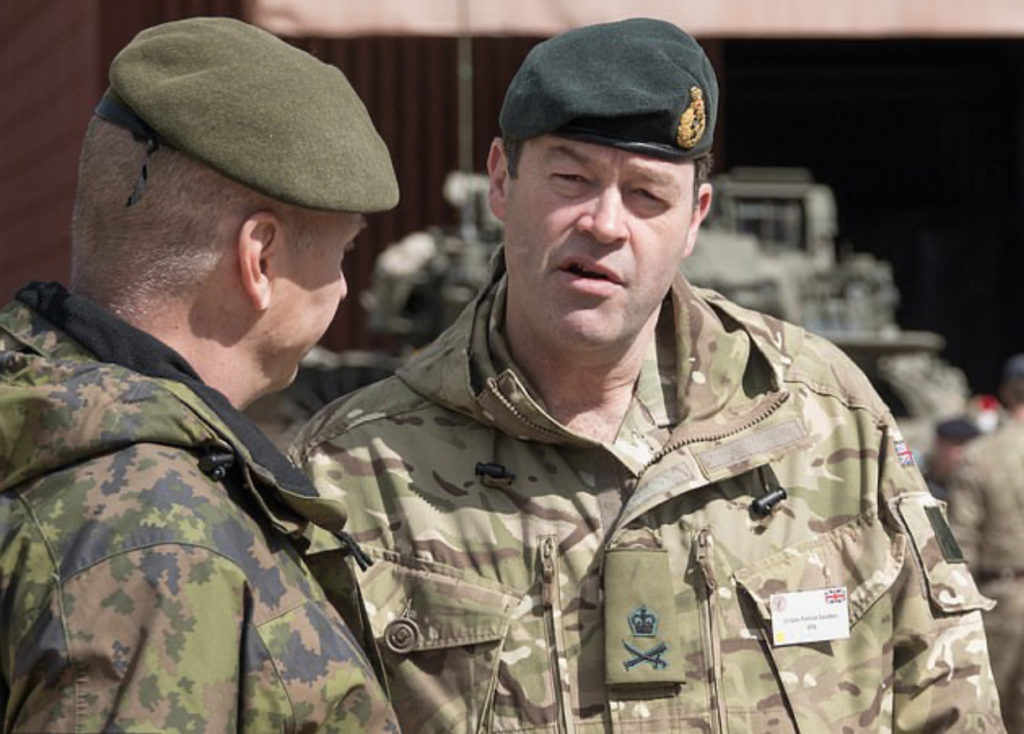
It comes after General Sir Patrick Sanders, the former head of the Army, warned the UK’s donation to Ukraine of 14 Challenger 2 tanks made it “temporarily weaker” as the donation had left a “gap in our armoury”.
Other equipment supplied to Ukraine includes missiles, drones, artillery and small-arms ammunition, three Sea King helicopters, communications equipment and personal equipment such as body armour and helmets.
Sir Patrick also recently said war with Russia was inevitable unless the UK stockpiles lethal weapons. He said that if the UK fails to regrow its “very, very empty stockpiles” in light of all it has gifted to Ukraine it will be at war in five years.


